Kittens. They are cute, cuddly, adorable, and extremely playful. It’s hard to say no to playtime with kitty especially when they are just a few weeks old, but what happens when they won’t stop biting your fingers and toes?
Sure, they might not be painful at first, but as they grow, kitty bites can easily draw blood. And getting them to stop biting when they’re older, well, good luck with that.
Getting kittens to stop biting is not as hard as it might seem. However, you do need to understand some things first, like why they bite and what their bites mean, before you can get down to kicking that bad behavior to the curb.
Table of Contents
Why kittens love to bite?
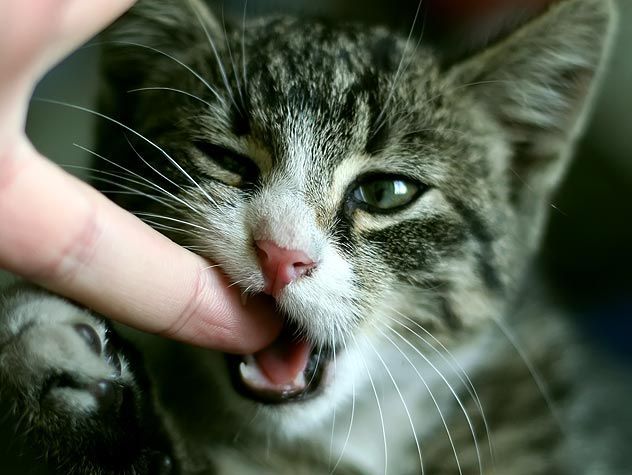
There are two reasons behind kittens’ love for biting. One of them is that it is a natural play behavior they learn from their littermates, and the other is teething.
To Play
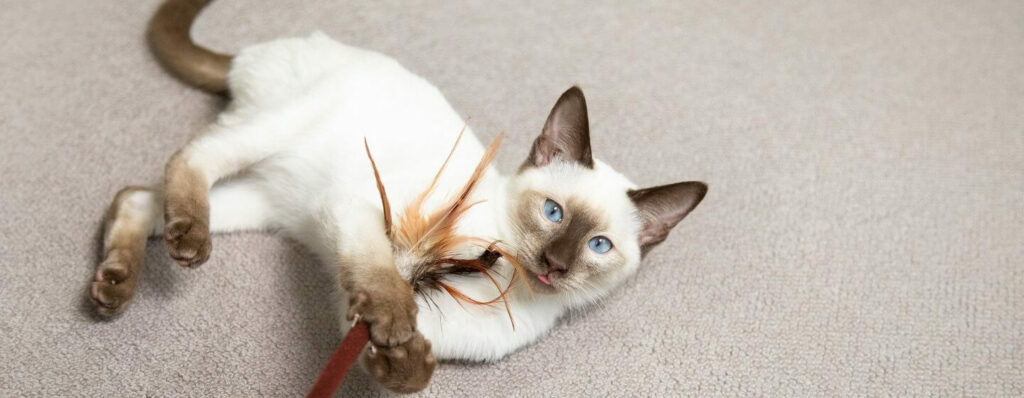
Kittens bite to teach themselves how to control the strength of their bite. Growing up with their littermates, they quickly learn that while biting is okay, biting painfully or hard enough to draw blood isn’t acceptable.
They learn this through their mother’s reprimands when they harm their siblings, and through the negative reactions and isolation, they may get from their littermates if they can’t control their bite.
It helps them Teethe
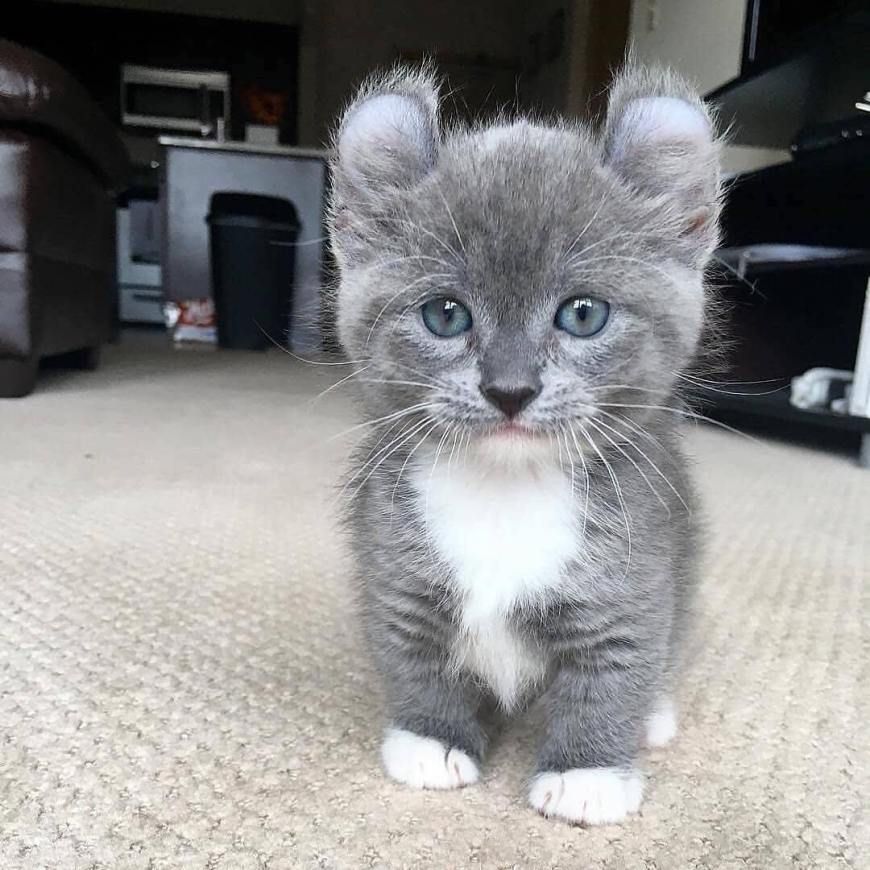
The other reason why your kitten may be sinking their teeth into anything and everything is because they’re teething. Kittens begin to lose baby teeth by the time they’re 9 weeks old. The teething process doesn’t stop until they’re 5 or 6 months old.
During this period, kittens will chew on everything they can wrap their little paws around. This includes your hands and toes. They do this mostly to ease the discomfort of teething. Experts say that this is the perfect time to introduce kittens to better chew toys, because the more relief they get from them, the more likely they are to stop attacking your hands and feet at every opportunity.
How to stop kittens from biting?
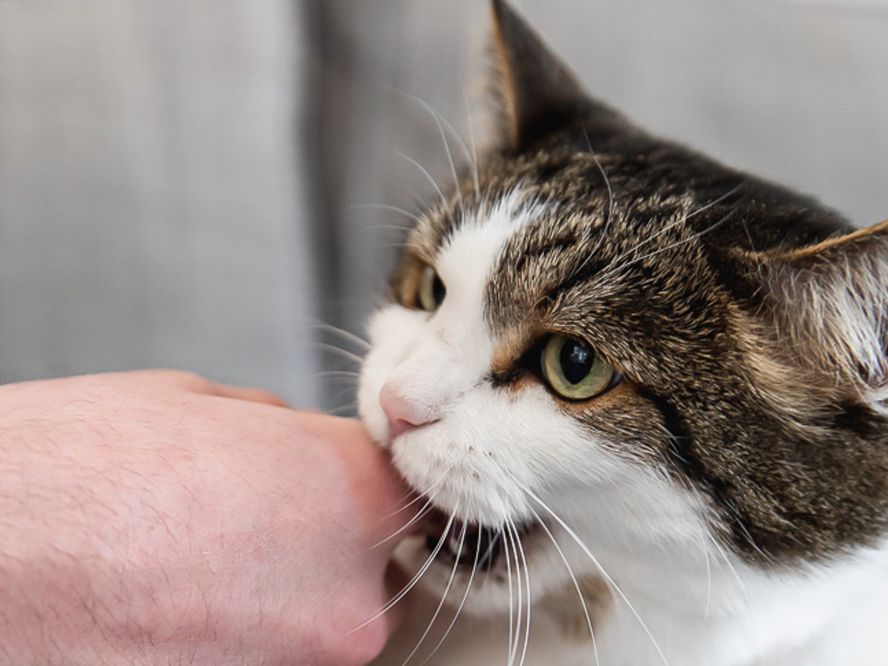
First, let’s look at some of the things we do that encourage kitty biting.
- Laughing and smiling while they bite us only encourages them to keep at it. They figure that if we’re enjoying it, then there’s no reason to stop.
- Retracting your hand too fast only makes it a more intriguing target. Kittens love it when you make it a challenge for them. The more you move, the quicker you move, the more they will want to catch you and sink their teeth into you.
- Encouraging play even after they bite you is generally not a good way to stop kitty bites. They need to learn that you do not enjoy being bitten. Don’t immediately revert to play after they break the no-biting rule. Give them a few minutes to calm down and realize that play stops when they do certain things.
- Dangling toys from your fingers may be a great way to attract the kitten’s attention, but it also encourages them to use your fingers as part of the toy. When playing with kittens, try as much as possible to remove your fingers from the equation by using pole-like toys or toys with long strings to avoid sending mixed messages.
Now that we know what not to do, let’s now look at what to do when your kitten bites during play.
- The first thing to do, the most important thing of all, is to stay still. Stop all action and essentially play dead. When your kitten bites, all they want is a tussle. When you stop moving, you deny them that satisfaction, and they quickly lose interest.
- Instead of grabbing your hand away quickly, which we saw only entices them further, try to gently but firmly push your kitten away. Make sure to do it slowly and deliberately. This slow action throws them off because in the heat of playtime they expect rapid movement. Doing so slowly will cause them to loosen their grip on you.
- Say “ow” whenever your kitten bites. Don’t yell it or scream it out, but say it loud enough for them to hear it. Combine this with the slow retraction of your fingers from their grip, and do it every time they bite. With time, they will understand that “ow” means the end of playtime, so they will avoid anything that causes you to say that.
- Give them a moment to calm down if they bite you during playtime. Immediately they bite, stop all movement and gently push them away or redirect their attention to their toys. Once they’re calm and relaxed, you can resume playtime using the appropriate toys.
If you want your kitten to stop biting permanently, here’s a few tips that can help.
Never use hands during playtime
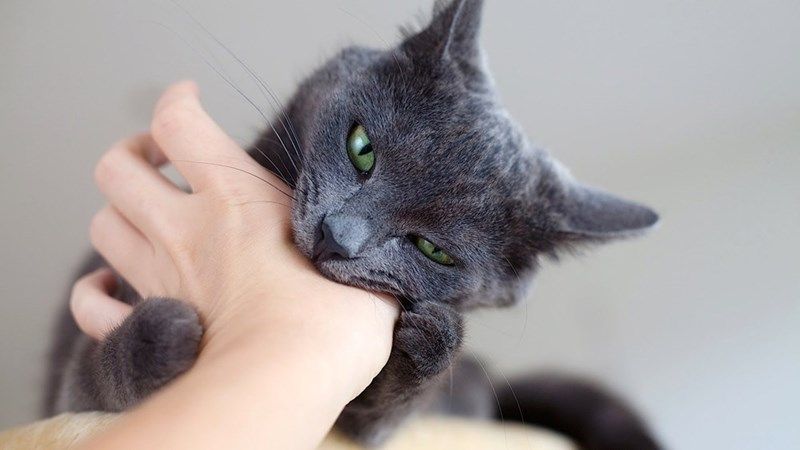
Petting can turn into playtime really fast, especially if your hand is around the kitten’s mouth. Keep your hands well away from the kitten’s mouth during petting, and when playtime comes around, use toys, not fingers. Teach them from the start that your hands are not playthings.
Give kitties plenty of chew toys
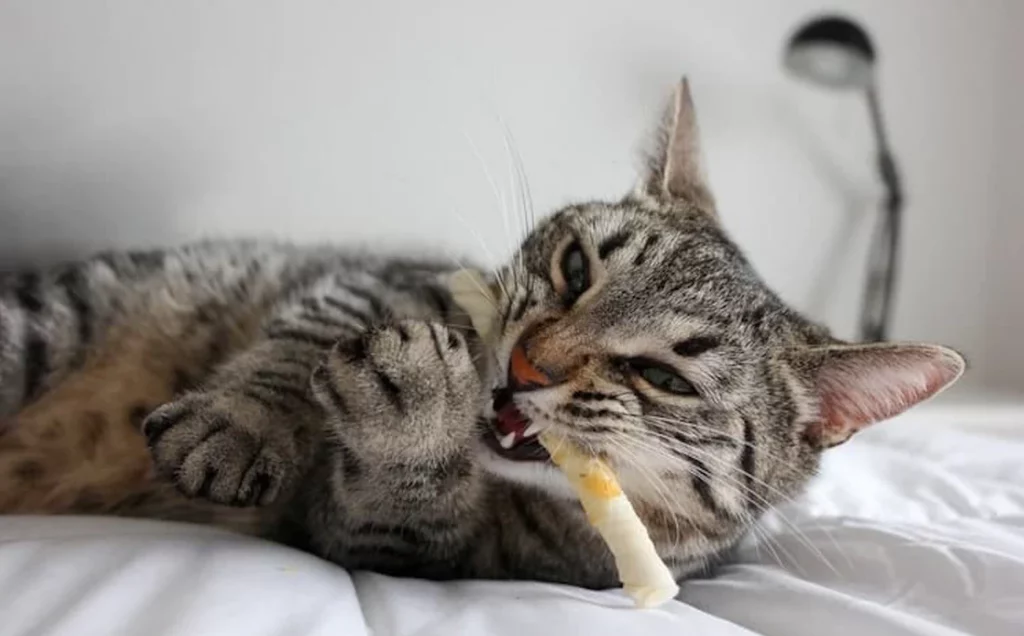
Kittens need to ease their discomfort somehow during teething. Don’t let them suffer. Be prepared with plenty of chew toys for when they reach their teething age. When they start biting your hand, offer them a chew toy instead. Reinforce this behavior by being consistent about it.
Make sure your kittens get enough play time
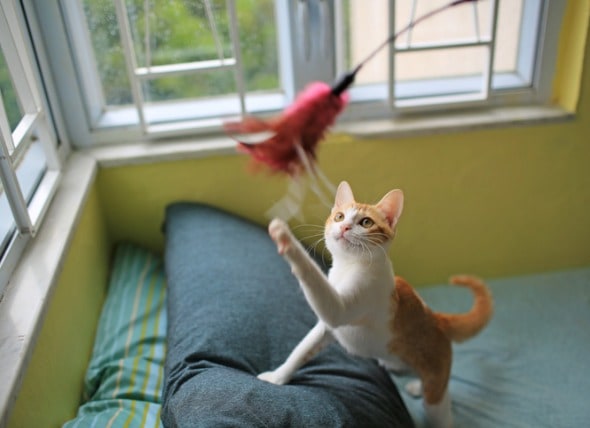
Kittens need at least 30 minutes of playtime per day. This allows them to burn off excess energy as well as build strength and agility. Let them work off all their energy by scheduling two or three 10-15 minute play sessions throughout the day. During these sessions, encourage them to play with their toys as much as possible. This will allow you to build a stronger bond during playtime without the scratches and bite marks.
Here’s What NOT to Do to Stop Kitty Biting
Do NOT be violent or aggressive in any way

If your kitty bites you, no matter how painful it is, avoid hitting, shoving roughly, yelling, or using water squirts as a deterrent. These will only make the kitten afraid of you. They won’t understand why they deserve punishment for doing something that seems normal and okay for them.
Be firm, be consistent, but by no means should you resort to violence or aggression. This will not do your relationship any good.
Stopping kitty bites requires patience
Remember, kittens are not known for their great listening skills or obedience. All they know is play. Be patient with your kittens. Give them time to learn that some things are not okay. Be consistent with your training as well. Every time the kitty bites your hand, stop playtime immediately. Let them understand that they’ve crossed a boundary.
With time, they will pick up that doing so only invites the end of playtime, and will avoid playing with things other than their play toys.







9 comments
Thank you for enjoying it 🙂
Awesome! Its really remarkable piece of writing, I have got much clear idea regarding from this article.
I am actually pleased to glance at this web site posts which carries tons of valuable facts, thanks for providing these kinds of statistics.
If some one needs expert view on the topic of running a
blog then i suggest him/her to go to see this weblog, Keep up the good job.
I was wondering if you ever thought of changing the page layout of your site?
Its very well written; I love what youve got to
say. But maybe you could a little more in the way of content so people could connect with it
better. Youve got an awful lot of text for only having 1 or 2 images.
Maybe you could space it out better?
Greetings! Very helpful advice in this particular article!
It is the little changes that produce the most important changes.
Thanks for sharing!
I think that is among the such a lot vital info for me.
And i am satisfied reading your article. But wanna remark
on few normal things, The site style is great, the articles is in reality nice : D.
Just right process, cheers
You need to be a part of a contest for one of the greatest sites
online. I’m going to recommend this web site!
i like this superb post